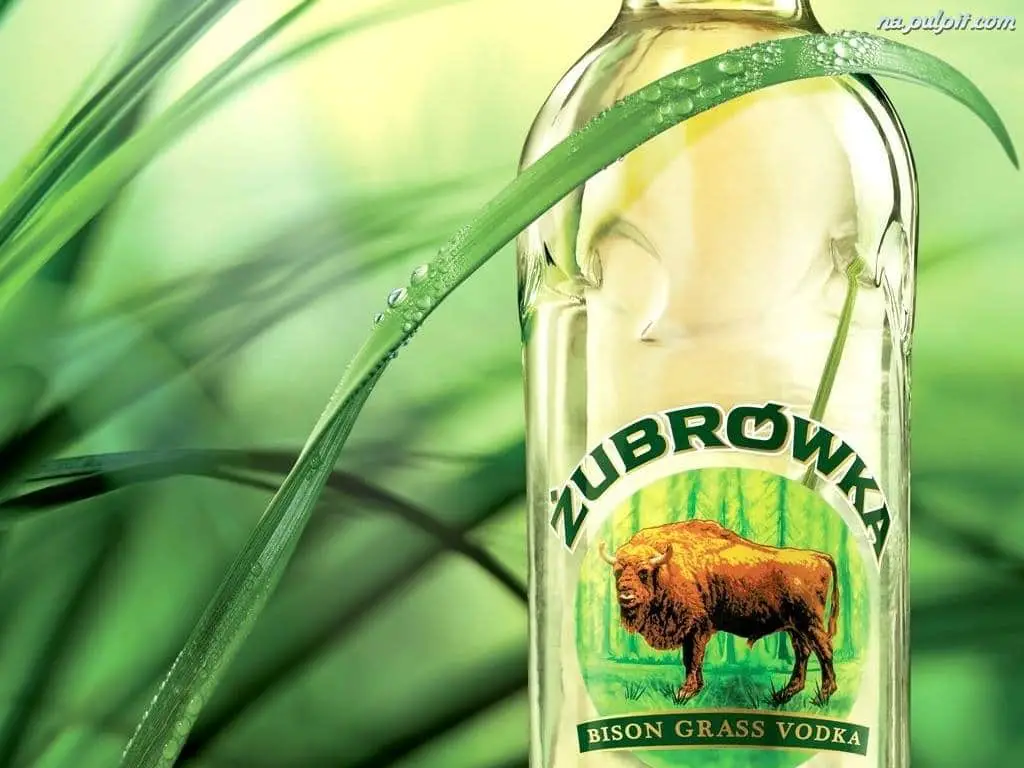Żubrówka (Bison Grass) Vodka is a dry, herb-flavoured vodka bottled at 40% ABV. It is distilled from rye and bison grass from the Bialowieza Forest, which also gives the spirit a light yellow to amber color. A decorative blade of bison grass is traditionally placed in each bottle.
First record of Żubrówka dates to the 16th century, near the contemporary Polish-Belarusian border. The name refers to a type of vodka. Brewers of the drink are still several.
By the 18th century it was a favorite among nobility and peasantry alike. In 1926, the Polmos Company developed mass production for for Żubrówka, which was subsequently copied by companies worldwide under a variety of band names. The original distillery was located in Poland, but moved to Soviet control when the USSR took over what is now Brest, Belarus. The factory was nationalized in 1939. and is now under the name Belelco. It still produces what is now called Brestskaya Zubrovka.
Although Żubrówka is usually served chilled on its own, it is popularly mixed with apple juice. The resulting cocktail is known as “szarlotka,” or “apple cake” in Polish. In America, it is known as “tatanka,” the Lakota for “American Bison.” A “Czarny Żubrów” (“Black Bison”) is Żubrówka mixed with black currant juice.
The bison emblem of the Finnish Air Force’s Lapland Air Command originated from the label of the original Polmos Żubrówka, and the name of the country “Żubrówka” in The Grand Budapest Hotel is named after this style of vodka.
Currently, the brands “Żubrówka” and “Zubrovka” are registered by Sojuzplodoimport/Russia and the Polmos Białystok company in Białystok, Poland, but is considered a generic name in the United States.
The Prenti drops some knowledge on Zubrowka:
How to make the Tatanka cocktail:








